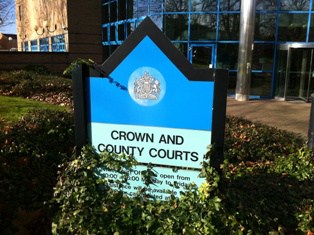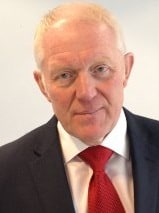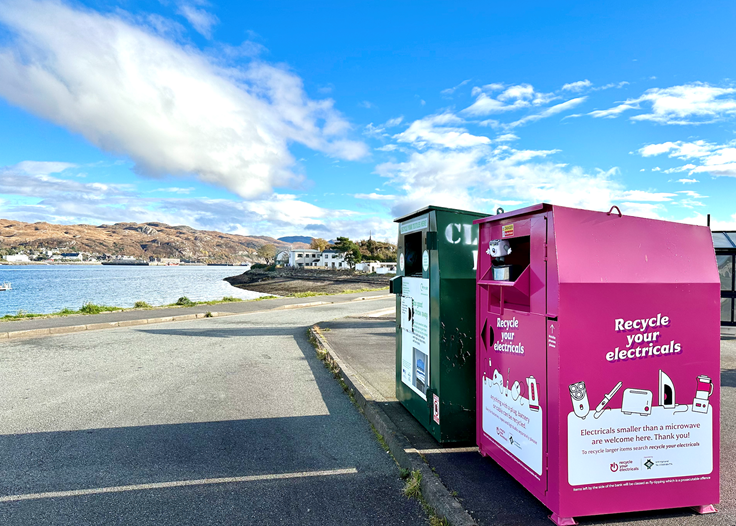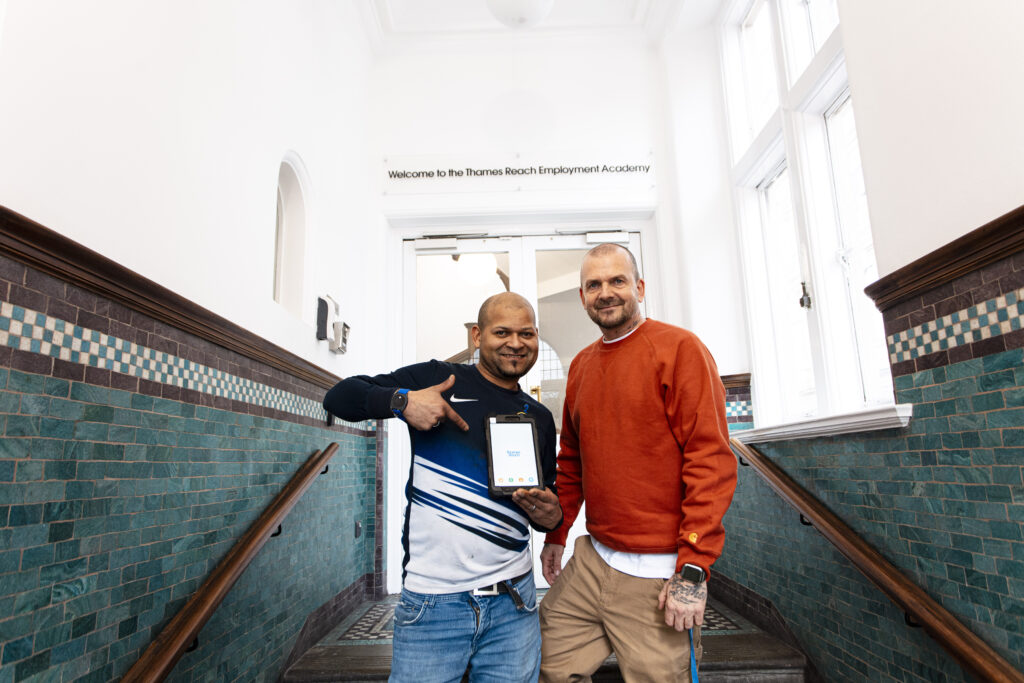MrVengelov, Adrian J. Thomson and Michael Singh Aulakh pleaded guilty at Basildon Crown Court toexporting hazardous waste electrical and electronic equipment (WEEE) for recovery. The material was shippedto Nigeria, Ghana and Pakistan in breach of the Transfrontier Shipment of Waste Regulations 2007 and the European Waste Shipment Regulation 2006, which restrict the shipment of waste materials to non-OECD countries.

The appearanceof a further two defendants, Terence Dugbo and Price Ibeh, was adjourned until early 2013 due to a lack of financial information and ill health respectively.
Todays sentencing marks the culmination of a complex and lengthy Environment Agency investigation entitled ‘Operation Boron’, which began in mid-2008 and has involved two trials due to the number of defendants involved.
The defendants in the first trial were found guilty and sentenced in November 2011 but then appealed. In October this year the conviction was upheld but the case could not be reported until this week’s second trial had concluded.
Strict liability
Crucial to the cases was the issue of liability and the appeal ruling was that strict liability did apply at all stages of the chain and it was no defence to say someone else in the chain had carried out tests on the waste electrical items to ensure they met export rules.
Passing sentence today (December 5) on Mr Vengelov, Mr Thomson and Mr Aulakh, Judge His Honour Jonathan Black, said: We live in a consumer society and that means that unlike days gone by we buy electrical goods knowing that they wont be with us forever.”
He explained that items get “outdated, unfashionable and dont fit in with the dcor of the modern home”.
Judge Black continued: “There is a legitimate trade, one that should be encouraged which takes electrical goods to the third world where they can be sold cheaply.” But, he went on to emphasise that proper procedures need to be followed for items exported and that they remain waste until “something is done to ensure that they are not waste”.
The judge listed five actions which are needed for the items to be resold:
- A visual inspection
- Ensure it is in good working order
- PAT test
- Functional test works and does what is has been designed to do
- Paper audit trail.
And, Judge Black remindedthose present that cathode ray tubes andfridges with CFCs are classed as hazardous waste andall the containers in the indictment were found to contain hazardous waste of one form of another.
Defendants
The court had heard that Krassimir Vengelov ran an electronic waste collection and treatment business, KSV Recycling, in Sussex.Fifteen containers were exported from his site. The Agency said the containers were window-dressed in that the front few rows looked to be in good order but behind them things did not look so good, with one container having a failure rate of above 90%.
In mitigation, Mr Vengelovs lawyer said that the material came from Light Brothers where PAT and functionality testing was carried out and a sticker placed accordingly on each item with a bar code. He said that the purpose was to export working goods to African countries in line with client demands. He said that since the EA intervention his client had spent a lot of money on bringing his quality checks up to scratch and he had gained environmental management accreditations. He said: Despite Mr Vengelovs fault there is recognition that he has been cutting edge in trying to grapple with problems that have emerged.
Judge Black said that Mr Vengelov “sent containers to Nigeria, mainly CRT, aptly described by the prosecution as window-dressing.” He noted that Mr Vengelov had the capacity to act properly, but “in my view you had the desire to make as much profit as possible.” And, noting that Mr Vengelov had committed a further offence in September 2012, Judge Black remarked: “There is still some way to go before you can say you are fully compliant with legislation. It may be that your staff need more training or that there is a need for a complete culture change by you.”
Mr Vengelov, who had been fined in 2007 for having no waste management licence, was today fined 17,000 with 20,000 of costs plus a surcharge of 15. He was also ordered to pay a 75,000 confiscation order within six months or face 18 months in prison if it was not paid.
Michael Singh Aulakh ran a now-dissolved company, Thorn International UK in Smethwick, Birmingham. Two containers were exported from his yard. The Agency said the electrical equipment in the containers had failure rates of 25% and 50% respectively.
In mitigation, Mr Aulakhs lawyer said that the company for which Mr Aulakh was a director was effectivelyrun by his father. He said: We say that although he was director in name he was not director in practice.
Judge Black told Mr Singh Aulakh that “you had functional testing but of the containers at your yard 25% of material failed”. And, he said that while the case had been put that Mr Aulakh’s father ran the business, “I have difficulty in believing you are only an employee.” The judge also noted that Global Trading which now operates on the site is “in all appearances identical to Thorn International”.
Mr Singh Aulakh was fined 3,200 with 12,500 costs and a surcharge of 15 and a confiscation order was imposed of 10,000 with a six months prison sentence if the order was unpaid in six months.
Responding on the penalties to Judge Black, Mr Singh Aulakh’s lawyer asked for a different payment schedule and said his client would have to borrow money topay the fines. He also said thatGlobal Trading was a different business to Thorn International although it is based in exactly the same place it now deals in used clothingIt is now a company shipping clothing to Romania and there is only a small amount of electrical equipment there now.”
The judge rejected any change to the payment schedule.
Adrian J. Thomson ran Adys Skips and Recycling Services Limited which had a contract to collect televisions from 18 civic dumping sites in Norfolk. He rented space in his yard to Stewart McGuigan who selected items for export from those collected by Adys Skips. Mr McGuigan was given a conditional discharge following a guilty plea in May 2011.
A container from the site was stopped which the prosecution said was window dressed with the contents not tested and a number of TVs clearly not functional with cracked screens and the like.
In his defence, Mr Thomsons lawyer said that he had no previous convictions at all and suggested that the Agency might have told him his was doing the wrong thing, rather than brining a prosecution. He said: He [Mr Thomson] said to me if they had simply told me I shouldnt be doing it, I would have stopped.
The judge noted that Mr Thomsonhad said he was in ill health at the time of the offences and, referring to work carried out by his workforce while he was ill, the judge commented: “Youlost a contract with May Gurney because they[Mr Thomson’s workforce] were just putting material into a container. He added that Mr Thomson was now working in security as he had lost his business.

Andy Higham, Environment Agency
The judge fined Mr Thomson 400 with costs of 1,000 and a 15 victim surcharge and imposed a 3,000 confiscation order.
Separately, a charge against another defendant, Emmanuel Mukete, who is thought to have left the UK and is ‘wanted’, was ordered to remain on file by Judge Black.
First trial
The following defendants were found guilty in the first trial in November 2011:
- Orient Export Limited, run by Godwin Ezeemo and employee Chika Ezeemo arranged for the export of 8 of the original containers stopped. Mr Ezeemo was fined 3,000 with 3,000 costs plus a 12,000 confiscation order.
- Nnamdi Ezechukwu had worked at Orient Export before setting up Reliance Export Limited, which was responsible for exporting 3 of the original containers stopped. Mr Ezechuckwu was fined 6,000 with 1,000 costs and 6,000 confiscation order.
- Joseph Benson and his company BJ Electronics were picking up waste from civic amenity sites, and taking them back to his site in Walthamstow before being loaded for export. Mr Benson was fined 7,000 with costs of 4,000.
Environment Agency
Andy Higham, manager of the Environment Agency’s national crime team, told letsrecycle.com: “This case and the Judge’s ruling send out a warning that displays to all involved in WEEE exports that we take this matter extremely seriously.
“In terms ofstrict liabilitythis is new legislation and is the first time this has been tested in court. The duty of care is there to ensure that your methods for dealing with end of life goods are proper and the meet the demands of environmental regulations.”
Mr Higham went on to confirm that exports have their place. “It is a useful business stream for non-OECD countries providing they are fit for purpose but it is totally unacceptable to export waste.” And, he said: “This is not a victimless crime and the environment also suffers as a consequence.”
Mr Higham confirmed that financially, it is cheaper to export waste items, such as broken televisions, rather than paying for them to be treated correctly in the UK.










Subscribe for free